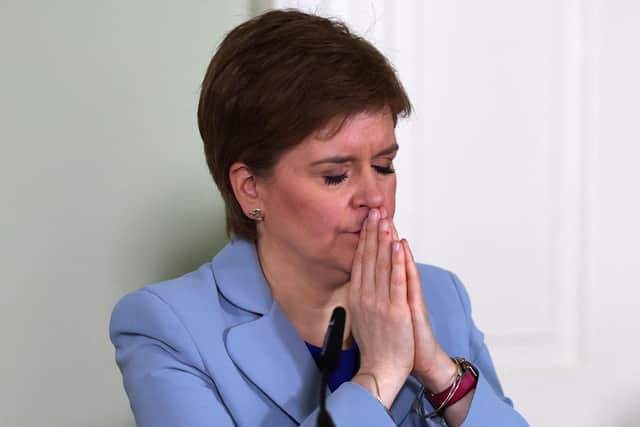Scotsman comment: Scotland’s search for substance in new independence drive
Nicola Sturgeon urged us to “lift our eyes, with hope and optimism” to take examples from a range of “comparable” countries across Europe. She pointed to a basket of prosperous, modern, small nations which have managed to forge their own way in the world.
But it was her emotional appeal that echoed. The question “Why not Scotland?” was one that would call to many: we have, indeed, brought much to the world. Why not take our proper place in it?
Advertisement
Hide AdAdvertisement
Hide AdBut the emotion was needed because, alas, the substance was short. Scotland cannot choose from an a la carte menu of other countries' virtues. Nations are weaved from complex webs of culture, history and fortune. You don't get to order up the low taxes of Ireland, and the brilliant healthcare of Denmark, and expect it all to gel. Not if you really believe in substance.


That does not mean Scotland simply cannot join that club of prosperous, small n ations. It just means we need our own story. Let's talk about Scotland, not an “arc of prosperity” or its descendants.
Having fudged the " what”, the First Minister also invited us not to dwell too hard on the “why”, to look away from the shared interests, resources and triumphs of the Union as we consider the sunlit uplands of something less alien than a discredited Tory government in London.
Tearing up a 300-year-old union because of the unpopularity of the lawbreaker currently in Downing Street would be crass, of course – Johnson may not last as long as this round of the independence debate. But Sturgeon was not shy of bracketing Boris Johnson and Brexit alongside Covid – a global pandemic ultimately handled as poorly in Scotland as in England – as evils of today's benighted Britain.
If we were invited to look to the stars, while turning our noses up at London, we were also invited to avert our gaze from what Scotland is today, and how it got here.
To put it gently: in an ideal world, the Scottish Government would not be relying on a “scene-setter” to set out the case for independence. After 15 years of SNP rule, better to have something more compelling: proof that government from Edinburgh is better than the equivalent from London at delivering on this country's distinct needs.
Where is that evidence? We could look to what Sturgeon once called the “defining mission” of her government – education. Perhaps class sizes would have been reduced? Perhaps the attainment gap between children from rich and poor backgrounds would have been closed?
Or health: perhaps drugs deaths would have fallen? Perhaps life expectancy would have improved?
Advertisement
Hide AdAdvertisement
Hide AdOr to infrastructure: perhaps hospitals would have been procured more effectively and safely, and ferries built?
The future of our children, our health, our public services: those are matters of substance. And, of course, on every count Scotland is going badly wrong.
This morning, more thoughtful supporters of independence might wonder at the wisdom of calling a referendum on the back of this threadbare track-record, into the headwinds of a likely global recession caused by a war in Europe.
Yes, the SNP – supported by the Greens – has mustered a mandate to call for a referendum.
But in truth Sturgeon, hostage to hardline nationalists rather as David Cameron was to ardent Brexiteers, is calling for a referendum in the least promising conditions in decades because she has to, to appease her political base. For if there is no move to independence, what is the SNP for?
For the rest of us, an opening day resort to the lifting of gazes, far removed from substance, bodes ill for this latest flare-up of the national debate.
Comments
Want to join the conversation? Please or to comment on this article.